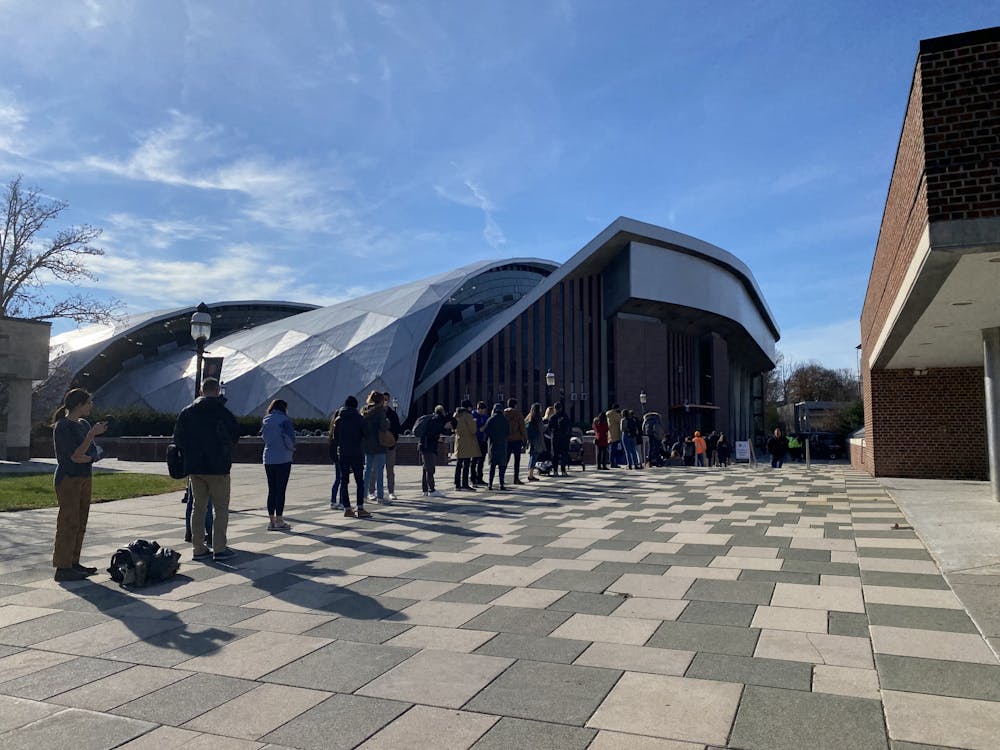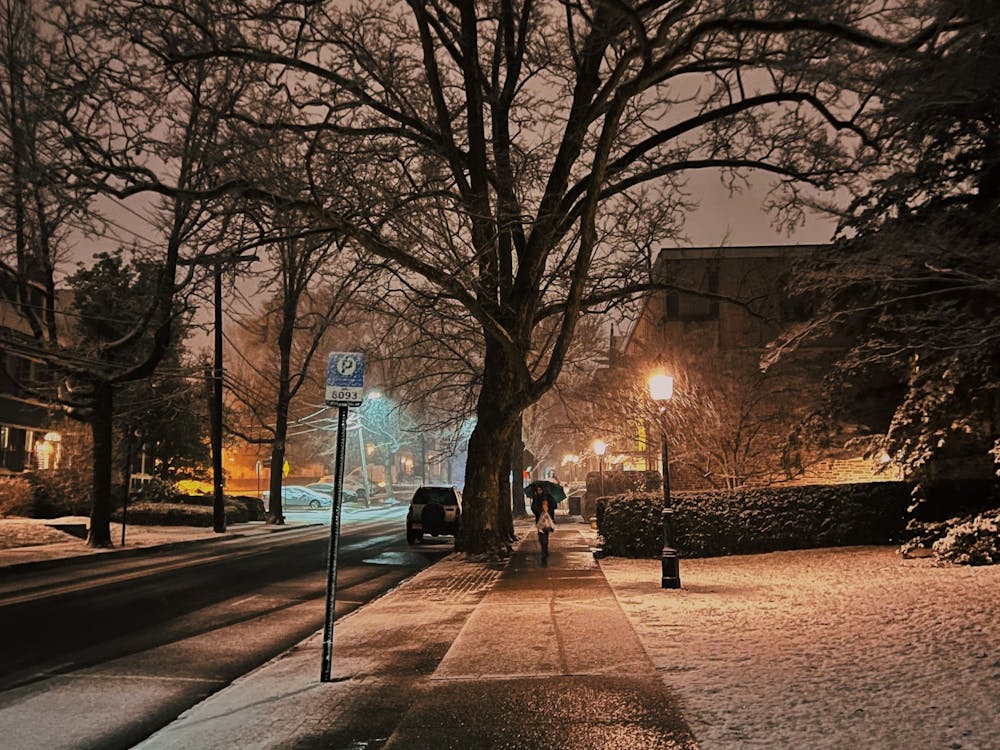Until the past couple of weeks, Princeton largely felt like an Orange Bubble in terms of protection from the coronavirus. In October there were several days where no new cases of COVID-19 were detected among faculty, undergraduates, and graduate students.
But then, shortly before Thanksgiving break commenced, cases began rising sharply. Several eating clubs sent emails out to the campus community to relay that students who had visited their eating clubs in the days before Thanksgiving had tested positive.
The influx of cases before Thanksgiving break has continued and should be deeply concerning to all of us. In the past week alone, there have been 84 positive cases. The University lists its risk level as moderate to high, but with a 0.37 percent positivity rate, we are alarmingly close to the threshold for high, 0.5.
To mitigate the spread of the virus, Princeton must take further action, including transitioning to entirely grab-and-go dining, making all finals take-home, and mandating the booster shot.
Although imposing more restrictions on our lifestyles is extremely disappointing, this is a matter of public health. Public health officials recently detected the presence of the omicron variant in the United States, including the state of New Jersey. While we don’t have extensive knowledge and understanding of omicron yet, there has been some evidence that the vaccine doesn’t protect as well against it. Just like the delta variant before it, it is only a matter of time before omicron makes its way onto our campus. Stronger protections would allow the University to minimize the harm omicron inflicts on our community.
Current guidelines restricting social gatherings have likely reduced cases, but these guidelines can only be so effective, given that students still gather in academic settings, and are largely unmasked in crowded dining halls. Continuing to allow such gatherings will only intensify the COVID-19 spread.
The logic behind the University’s decision to implement current policies prohibiting large student social gatherings is presumably to reduce proximity between students, especially in situations like eating club parties where they are likely to be unmasked. It defies this logic, then, to continue allowing students to eat in dining halls, where dozens of students eat close to one another unmasked. The CDC has designated our current dining situation as the highest risk, whereas if we were to strictly grab-and-go dining, we would move down to the lowest risk for COVID-19 transmission. Many students already take advantage of the grab-and-go system either due to convenience or health concerns, and so all the equipment to make the transition is readily available.
With Monday being the last day of classes, switching to exclusively take-home exams would reduce the gathering of dozens, and in the case of some classes, hundreds, of students indoors. Princeton has already offered the option to all classes to make exams take-home or virtual, and many professors have decided to make the switch. Some professors, however, have still chosen to remain with in-person exams, which forces select students to be in a more risky examination situation than others. Take-home and virtual final exams would also incentivize students to return home earlier than they would if they had in-person exams, therefore lowering the number of students staying on campus in the next few weeks.

In addition to taking these measures, the University needs to mandate booster shots for all students. As early evidence suggests, the vaccine provides less protection for the omicron variant than those that preceded it. Booster shots are our primary resource right now to protect against the omicron variant and ensure the highest quality of Princeton life next semester. As Editorial Board Chairperson Zachariah Sippy ’23 notes in a recent column, “We can be certain that expanding access and mandating boosters will, on the whole, ensure that the campus community is less likely to have and spread COVID-19.”
Currently, Princeton has not made booster shots accessible enough. In addition to offering the shots at inconvenient times, the University expects students to be prepared for “long wait times outdoors,” as stated in an email sent to the student body through TigerAlert. Mandating boosters and making them accessible to students as soon as possible is critical for Princeton to implement.
With a couple of weeks before finals ending and some students even returning home during reading period, not taking further public safety measures puts not only Princeton students at risk, but also our families. Gatherings for the holidays mean interaction with family members, some of whom may be immunocompromised or elderly. Personally, if I transmitted COVID-19 to my family, my conscience would never allow me to forgive myself.
These steps, combined with the increased testing, would greatly reduce campus density and thus lower the campus positivity rate.

Yes, these changes and restrictions require immense sacrifice on our part. However, they are worth it when it means protecting more of our community from COVID-19, especially those who won’t be able to easily bounce back from the virus.
I, along with many other students, anxiously await the University’s next steps. Is our well-being the top priority for Princeton, or something else?
Ndeye Thioubou is a first-year from The Bronx, New York. She can be reached at nthioubou@princeton.edu.








